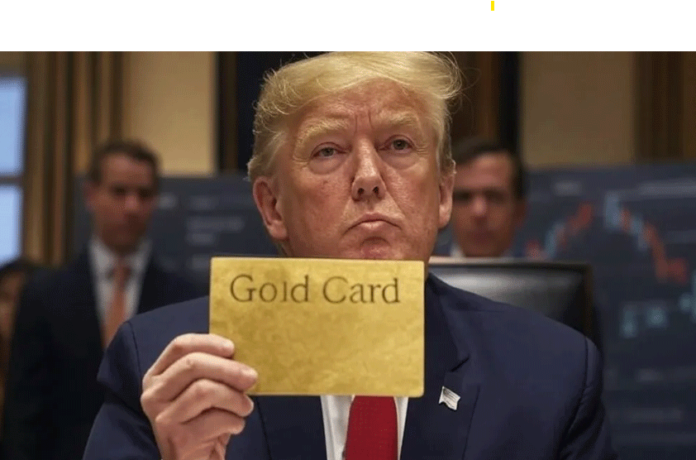On Tuesday, U.S. President Donald Trump introduced the “Gold Card,” a high-tier alternative to the Green Card, designed to provide a citizenship pathway for affluent immigrants investing in the United States.
Speaking from the Oval Office, Trump announced that the ‘Gold Card’ would be available for $5 million, granting holders “green card privileges plus.”
“We’re going to be selling a gold card. You have a green card; this is a gold card. We’re setting its price at about $5 million, and it will provide green card privileges plus,” Trump declared.
The President emphasized that the initiative aims to attract wealthy individuals who would bolster the U.S. economy through significant spending, job creation, and tax contributions. “Wealthy people will enter our country by purchasing this card. They’ll be successful, spend a lot of money, pay substantial taxes, and employ many people,” he explained.
The ‘Gold Card’ program is set to launch within two weeks, with Trump stating that he does not foresee the need for congressional approval. However, he did not disclose specifics about its implementation.
Commerce Secretary Howard Lutnick hinted that the initiative could potentially replace the existing EB-5 investor visa program, which grants Green Cards to foreign investors supporting U.S. businesses.
“The President stated that instead of continuing this flawed EB-5 program, we are going to terminate it and replace it with the Trump Gold Card,” Lutnick remarked.
Lutnick further explained that revenue from the ‘Gold Card’ would be directed to the U.S. government rather than private investments, highlighting its potential to reduce the national deficit.
“They will be able to pay $5 million to the U.S. government—not bypassing vetting, of course, as we will ensure they are outstanding global citizens,” Lutnick added.
The proposal has sparked debate, with supporters praising its potential economic advantages while critics express concerns over prioritizing wealth in immigration policy. More details on the program’s implementation and legal aspects are expected to emerge in the coming weeks.



